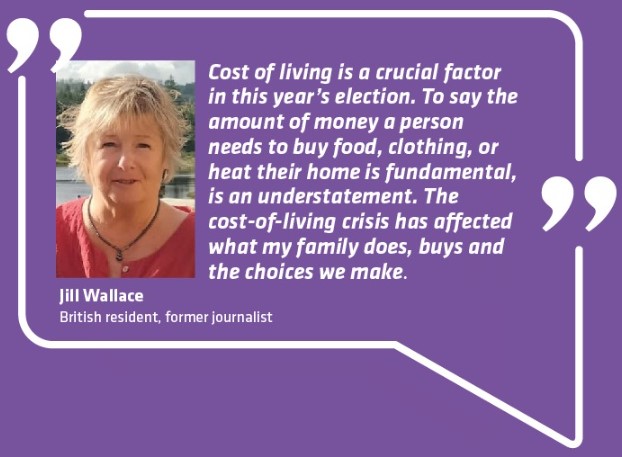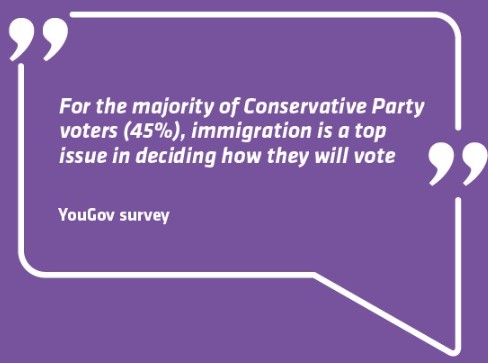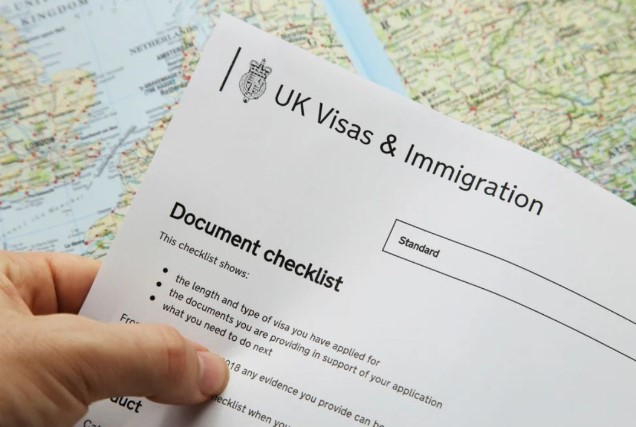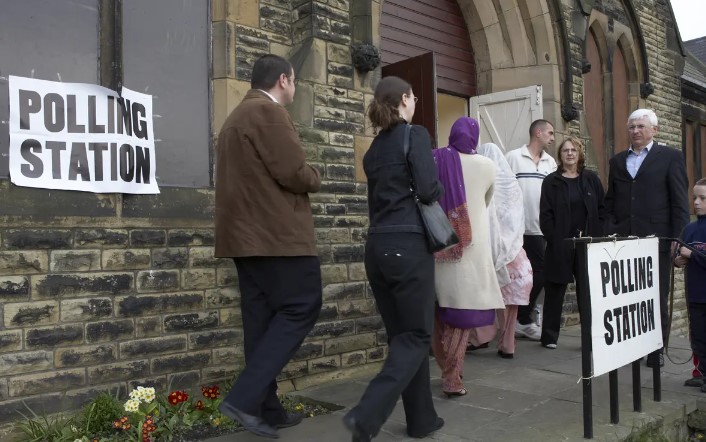When Britain’s PM candidates Rishi Sunak and Sir Keir Starmer recently clashed in their final debate on national TV before the 4 July general election, tax and immigration were among the top issues for deliberation.
Earlier, in the first such face-off on 5 June, the two leaders had attacked each other over health, and an ongoing cost of living crisis.
You Can Also Read: Decisive Final 48 Hours for the UK’s Future!
Together, these are the most important issues for UK voters, according to a recent YouGov survey. The survey reveals that of the 16 issues that Britons were given to choose from, the cost of living came at the very top. Health, immigration, and tax followed closely behind.
See the whole survey here:

Inflation Pressure High
In the last few years, high inflation driven by the pandemic and the Ukraine war have strained household budgets. Even though the recent figures by the Bank of England say the inflation has returned to its normal 2% rate, people are still paying much more for daily essentials.

British resident and former journalist Jill Wallace told PressXpress that the cost of living was indeed a ‘crucial factor’ in this year’s election.
“To say the amount of money that a person needs to buy food, clothing, heat their home or other basic requirements is fundamental is an understatement,” Wallace said. “The cost-of-living crisis has affected what my family does, buys, and the choices we make… we are pensioners and so… economizing more than ever as we are now on a limited income.”
Public discontent over living standards has been running high for some time, and it could mean that voters on Thursday are poised to return the Labour Party to power for the first time since 2010.
Labour Party leader Rachel Reeves recently told local media how households continued to remain under ‘acute’ financial pressure, despite official figures showing inflation fell to 2%, the official target rate for the first time in nearly three years.

Reeves told the BBC that while inflation is down, “prices have risen in the shops, mortgage bills are higher, and taxes are at a 70-year high.”
However, Conservative party leader Rishi Sunak has claimed that when he became the prime minister in 2022, inflation was at 11%. “But we took bold action. We stuck to a clear plan and that’s why the economy has now turned a corner.”
How much of this optimism will translate into votes remains to be seen.
“If prices continue to rise in basic staples and there is no increase in income (whether it be wages or benefits) then it stands to reason people will have to go without,” says Wallace, whose family is also feeling the high pressure of inflation. “My sister and brother-in-law are unable to work and have survived for a long time on money from disability allowances as he is terminally ill and she is his full-time caregiver. Both she and I shop around for bargains and buy in bulk when special offers arise and then share costs.”
Food prices in the UK today are about 31% higher than they were 3 years ago, according to data from the Office for National Statistics (ONS).
However, wages have only risen by 18% in three years, ONS data says, explaining that average weekly earnings actually increased from 581 to just 687 pounds.

Immigration Issue Key to Voting Sentiment
With a record-breaking 4,000 candidates having actively campaigned in this year’s election, recent UK election trends have predicted a potential shift in power – after almost a decade – to the Labour Party.
But there has been another trend, which indicates the growing popularity of the hard-right Reform Party and its leader Nigel Farage. Farage and his party are known to have a hardline stance on immigration – and are now appearing lucrative to voters who increasingly believe that immigration negatively impacts British society. Farage is known to have blamed immigration for various current problems, including the housing crisis.
Both the Labour and Conservative parties have also pledged to reduce net immigration if they come to power.

How will this impact UK visa policies post the election?
According to Yash Dubal, who is a London-based senior immigration professional at a private solicitor’s firm, “The next government may put a cap on the number of visas or strengthen its immigration advisory body, among other measures that are likely to come up with. But there is a shortage of skills in various sectors here and it will take a few years before the new policies really have an impact on immigration,” Dubal explained to Mint newspaper.
However, there are other issues as well, that are just as important to voters.
“At the end of the day, I choose health as the most important,” Wallace told Press Xpress. “I was lucky to have been born in the late 50s and grew up in the 1960s when the NHS was flourishing. Medical care was freely available to all and it was outstanding.”
Wallace added that after health, the other key issues she would bear in mind when voting would be: the economy, housing, jobs, climate change, tax, and immigration, in that order of high-to-low importance.

Many media outlets have also been putting the Gaza war as a key issue to voters. But the YouGov survey has revealed that when voters were asked if the Gaza conflict was an important issue in the UK election, only 5% seemed to agree, and only 2% said it would be their single most important reason to vote.
“I am not sure if the wars in Ukraine and Gaza (and let’s not forget many other countries in the world where there is unrest and suffering) are important to voters in this election,” says Wallace. “The issue of supporting invaded territories and assisting other countries wherever they are in our world is very important to me. There are many ways to support people through humanitarian means and supplies and voting in organizations such as the United Nations.”
For those who intend to vote for Labour, the cost of living is clearly the issue. According to the YouGov survey, a majority of Labour voters (58%) say the cost of living is one of the top issues that will decide their vote, significantly ahead of second-placed health (44%) and ‘the economy in general’ in third (39%).

In contrast, for those who intend to vote Conservative, says YouGov, the cost of living only comes third on their list, at 36%. They are instead most likely to say that immigration and asylum are a top issue in deciding how they will vote, at 45%, followed by the economy at 39%.
Those intending to vote for the hardliner Reform party are even more animated by immigration, the YouGov says on its website, with fully 82% saying this is a top issue for them. The cost of living comes in a very distant second, at 34%.
It’s interesting to note that in the last 2019 election, UK voters chose Brexit as their topmost reason for voting – but it features nowhere in this UK election.
As for the candidates, Labour’s Keir Starmer has emerged as a formidable contender to Conservative’s Rishi Sunak and is predicted to win a historic mandate.

According to YouGov predictions, the Labour Party could secure between 422 and 456 seats, one of the largest majorities in British political history. Conservatives could win between 72 to 140 seats.
“I am not happy with any of these candidates and despair with the majority of offerings from every party standing in the election on Thursday,” says Wallace.
“I sincerely hope there are some younger people who are prepared to take on the traditional politicians and views of politics to try to make this country a better place for everyone… I can only say (in comparing candidates) that at least we are not living in the United States of America…”


